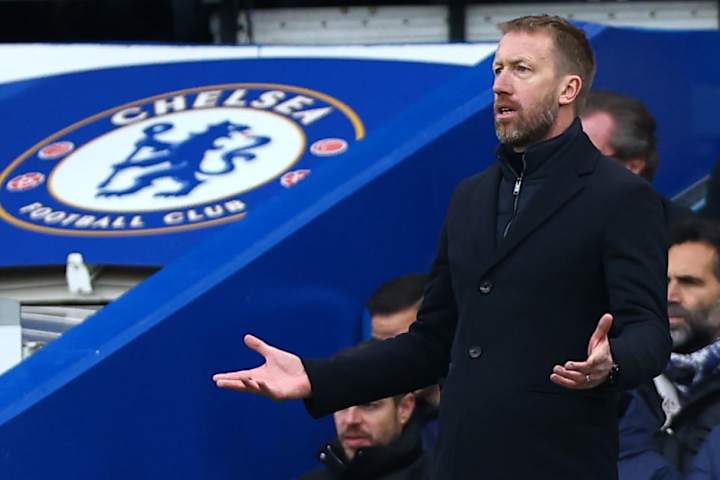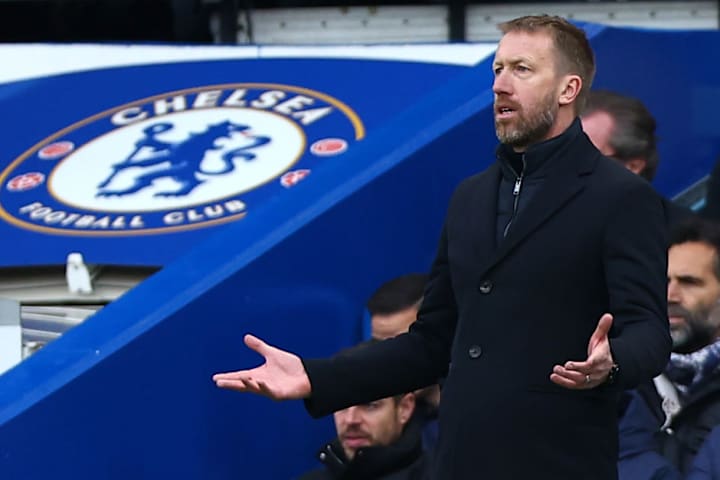
Graham Potter explains why being Chelsea manager was an ‚impossible‘ job
Graham Potter has admitted that he found his job as Chelsea manager „impossible“ due to the high player turnover, an enormous squad and the lack of stability it created.
Potter was hired in September 2022, a week after the summer transfer window had closed, to replace Thomas Tuchel. Chelsea had recruited seven new first-team players who needed to gel at the same time as the new boss was getting familiar with his own new surroundings.
Then, with the new ownership firmly putting their own stamp on things in their second transfer window come the winter, eight more players arrived at Stamford Bridge.
Having to make all those adjustments while still working towards ambitious targets was too much.
„After speaking to the owners, they were very ambitious. They wanted to challenge for trophies and use younger players. The chance to have that opportunity to work with younger players and build an environment. We did some things well,“ said Potter, a guest on Sky Sports Monday Night Football.
„All of a sudden there was a bit of adjustment to be done while still trying to compete, the whole team was in a bit of flux. There was a lot of adjusting. It’s impossible to play everybody in every minute. Finding that stability was a bit of a struggle. You live and you learn. It was a very turbulent period in Chelsea’s history. I wish I had done better.“

Potter lost his job seven months into a five-year contract. At that point, the Blues had won just four Premier League games of the 14 played since the mid-season World Cup.
He was a victim of the win-now Chelsea culture that has claimed numerous managerial scalps stretching back some 30 years, but heightened once Roman Abramovich bought the club in 2003. Looking back, Potter accepts there was a naivety on his part that he thought the new ownership group led by Todd Boehly would bring about a change in that respect.
„The culture at Chelsea over a period of time has got them success so I respect that. I suppose you could feel that from the outside, the media and the supporters. Perhaps the mistake I made was that I thought with new ownership there would be a change of culture,“ he explained.
„But culture runs a lot deeper than that. Before the World Cup, we’d only lost three matches in the Premier League, one to Arsenal, who were top at the time, and to Newcastle and Brighton away, but the world was closing in and we were close to crisis.
„Perspective is not always easy to get, and at the time Chelsea were used to winning and competing. It was easy to say it must be the coach as he’s not used to playing at this level or worked at this level. Maybe he was the problem, and I could understand that as the results weren’t what they expected.“